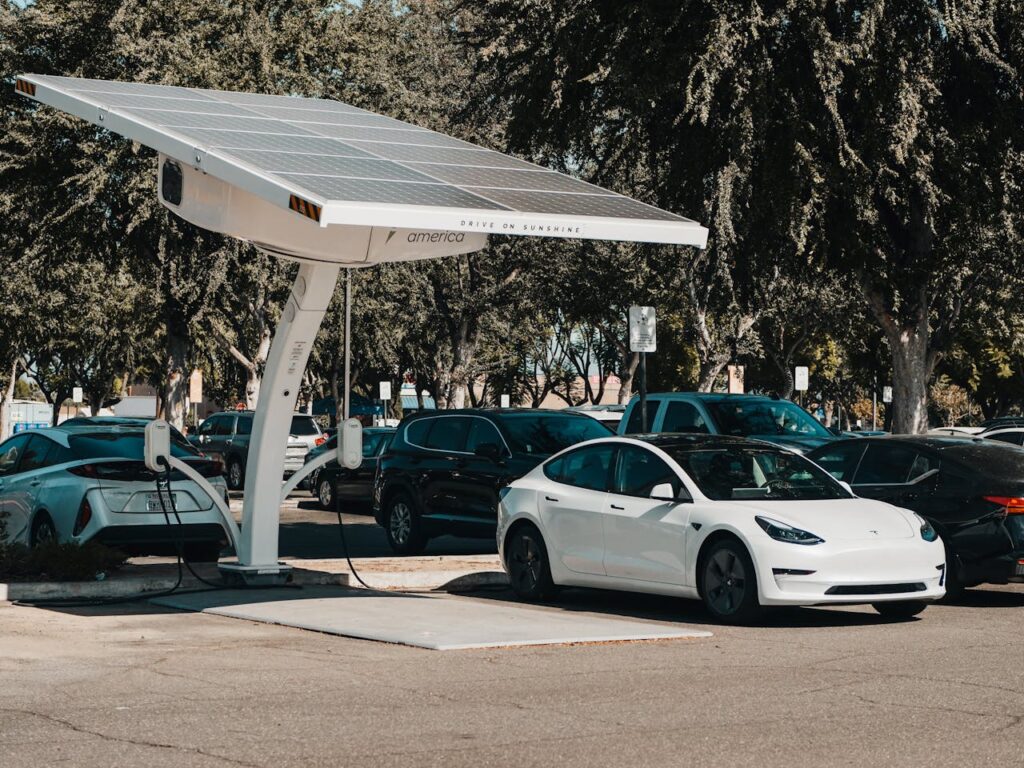Battery technology is undergoing a revolution and solid-state batteries have the potential to revolutionize electric vehicles.

Battery technology is undergoing a revolution and solid-state batteries have the potential to revolutionize electric vehicles.
The revolution of electric vehicles (EVs) is well under way, and it is redefining how we think about modes of transportation, climate change, and even energy storage. However, despite the significant advancements that have been made in electric vehicle design and performance, there is still a crucial component that is not yet fully developed: the battery.
Solid-state batteries are a technology that offers not just incremental gains, but a full leap ahead in terms of safety, range, charging time, and lifespan. This is where they come into play. In spite of the fact that they are still in the process of being developed, solid-state batteries have the potential to be a game-changer for electric cars, and they may even be the tipping point for universal use.
Can You Please Explain What Solid-State Batteries Are?
To get a grasp on the buzz, you must first be familiar with the operation of the electric vehicle batteries of today. During the charging and discharging processes, the majority of electric cars are powered by lithium-ion batteries. These batteries make use of a liquid electrolyte to facilitate the movement of lithium ions between electrodes.
In solid-state batteries, the liquid electrolyte is replaced by a solid electrolyte, as the name of the battery indicates. Despite its apparent simplicity, this switch is responsible for a cascade of advancements, including increased energy density, safer operation, and a longer lifetime, all of which are encased in a design that is more compact.
You may think of it as replacing the fragile and combustible heart of the electric vehicles that are now in use with something that is more robust and efficient.
Why They Are Important: The Electric Vehicle’s Roadblock Batteries are at the heart of both the promise and the issues that electric vehicles present. At the moment, a lot of prospective purchasers are hesitant because of:
- a restricted range for driving
- Extensive delay in charging
- Warnings about potential dangers (fires, thermal runaway)
Expensive in nature
Each and every one of these problems is directly addressed by solid-state technology. Solid-state batteries, which have a higher energy density than other types of batteries, have the potential to significantly increase driving range. This would result in fewer stops, less “range anxiety,” and greater freedom. Additionally, charging might be sped up, which would cut down on the lengthy wait times spent at charging stations. The safety of these devices is significantly improved as a result of their increased stability and decreased propensity to overheat.
A longer life span and a smaller footprint
The endurance of solid-state batteries is one of the advantages that are not readily apparent. The lifespan of solid-state variations of lithium-ion batteries might be substantially greater than that of standard lithium-ion cells, which deteriorate with each charge cycle. This results in a reduction in the frequency of replacement, which not only results in cost savings for customers but also has a positive impact on the environment.
Since these batteries are designed to be tiny, they also take up less room than other batteries. This opens the door for the construction of vehicles that are lighter and more efficient, as well as for the insertion of more batteries into the same area in order to expand the range even further.
Obstacles to Overcome on the Path to Actuality
In light of the fact that solid-state batteries are so beneficial, why aren’t they widely available yet?
Realistically speaking, the development of solid-state batteries is still in its preliminary phases. Lithium metal and ceramic electrolytes are two examples of the materials that are used, both of which may be costly and challenging to produce in large quantities. Additional significant challenges include preserving consistent performance throughout a wide temperature range and avoiding deterioration over an extended period of time.
On the other hand, automobile manufacturers and technology firms are pouring billions of dollars into research and development in order to find solutions to these issues. In test cars, several prototypes are already exhibiting results that are very encouraging. It is no longer a matter of “if”; rather, the issue is “when.”
The Solid-State Industry Is Getting Big Bets
Those in the automobile business are keeping a close eye on this particular market. There have already been announcements made by a number of prominent manufacturers that they intend to launch solid-state electric vehicles over the next several years. By the middle to late decade, several companies intend to launch devices that are equipped with these batteries.
It is possible that we may see early consumer cars on the road before the year 2030, as this vigorous drive shows. In addition, once the technology has reached its full potential and has been scaled up, it has the potential to become the industry standard, similar to how smartphones quickly embraced lithium-ion technology ten years ago.
The Implications of This for Both You and the Planet
In the event that you are considering purchasing an electric vehicle, solid-state batteries can be worth the wait. They offer a greater range, shorter charging times, improved safety, and cheaper lifetime costs, all of which contribute to the increased convenience and accessibility of electric driving.
The use of this technology has significant repercussions for the environment on a worldwide scale. The transition away from fossil fuels is accelerated by the development of improved batteries, which make electric vehicles more appealing and practicable. In addition, solid-state batteries have the potential to have a longer lifespan and make use of less harmful components, which means that they might also minimize the environmental effect that is caused by the manufacture and disposal of batteries.
Solid-state batteries are not merely a step forward; rather, they offer a full rethinking of how we power electric cars. There is a revolution in the making when it comes to batteries. Due to the fact that businesses are racing to find solutions to the remaining technological hurdles and bring this breakthrough to market, the next few years will be very important.
For the time being, the promise is crystal clear: a future that is cleaner, safer, and more energy-efficient, in which electric vehicles are not only an environmentally friendly choice; rather, they are the best option, without a doubt.
There is a revolution in batteries that is just getting begun. There is a possibility that everything, from the way we drive to the way we think about energy, may never be the same again once it is completely implemented.




